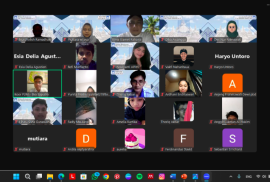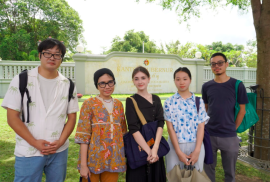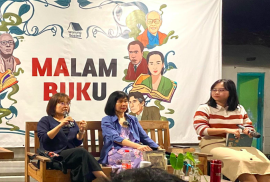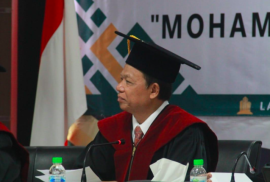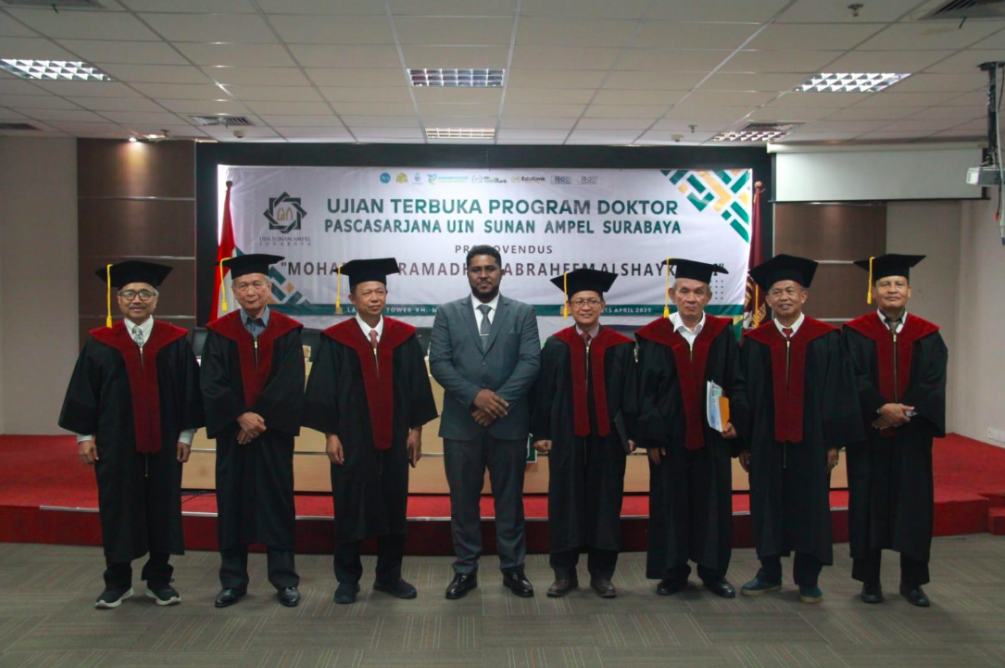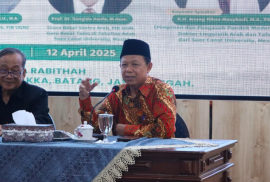Yogyakarta, 28/4/2025 – The Association of Indonesian Regional Language and Literature Students (Imbasadi) held a cultural webinar titled “Mencintai yang Dekat, Mengenal yang Jauh: Imbasadi Menjawab Tantangan AI dan Global lewat Kebudayaan Daerah” (Loving What is Near, Understanding What is Far: Imbasadi Responds to the Challenges of AI and Globalization through Regional Culture) on Sunday (April 13, 2025). The event was part of the series commemorating Imbasadi’s 32nd anniversary.
The webinar featured R. Bima Slamet Raharja, S.S., M.A., a lecturer from the Javanese Language, Literature, and Culture Program at the Faculty of Cultural Sciences, Universitas Gadjah Mada, as the keynote speaker. Noviyanti Alfitri, a student from the same program and a member of Imbasadi’s Research and Community Service Division (P2M), served as the moderator.
In his presentation, R. Bima Slamet Raharja highlighted the role of artificial intelligence (AI) in supporting the preservation and expanding public access to the literary and cultural heritage of the Indonesian archipelago. However, he emphasized that the use of such technologies must be carried out wisely, ensuring that cultural wealth remains respected, safeguarded as a national treasure, and continues to provide lasting benefits.
This cultural webinar demonstrated Imbasadi’s and the Javanese Language, Literature, and Culture Program’s strong commitment to preserving and advancing regional languages, literatures, and cultures amidst the pressures of globalization. The initiative also aligns with the Sustainable Development Goals, particularly in the areas of quality education, sustainable cities and communities, and partnerships for the goals.
[Public Relation of Javanese Literature, Haryo Untoro]

